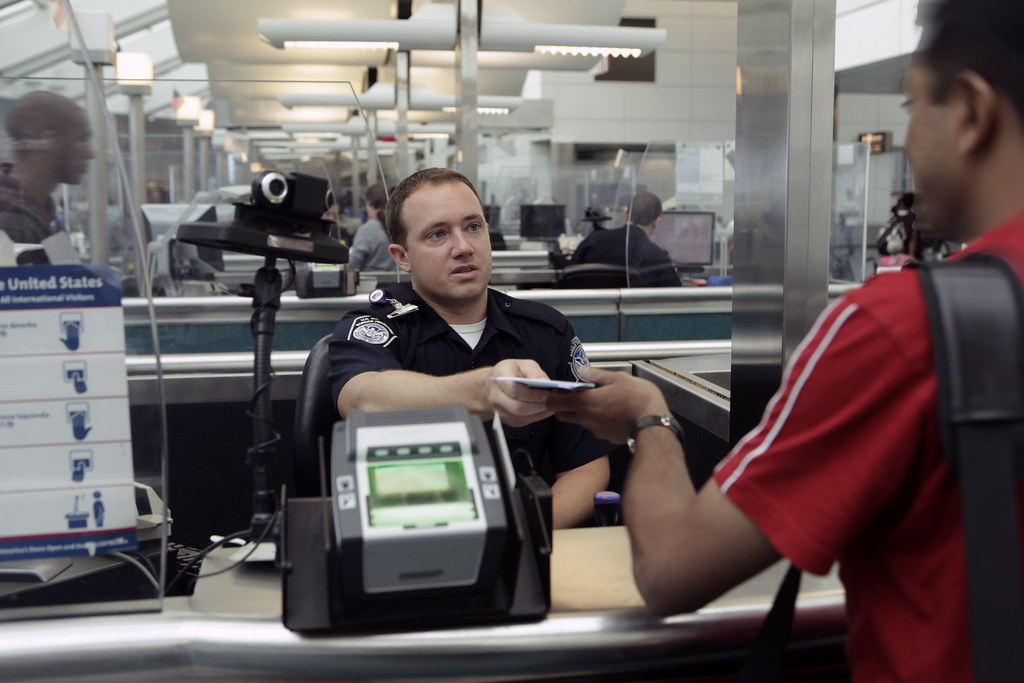U.S. airport immigration procedures have grown more stringent, prompting concern even among citizens. Enhanced immigration screening now includes deeper questioning and searches of electronic devices, causing anxiety among travelers.

Citizens and visa holders under scrutiny
According to a report by USA Today on March 30, U.S. Customs and Border Protection (CBP) has intensified inspections at airports. These include in-depth questioning and electronic device searches, even for legal visa holders and permanent residents.
This heightened level of scrutiny, referred to as “enhanced vetting,” is being increasingly applied to dual nationals. For example, Kailyn Rivera, a dual U.S.-Colombian citizen and former senior advisor at the Environmental Protection Agency, was detained during reentry at Charlotte Douglas International Airport after a trip to Curaçao. She was questioned about her travel purpose and itinerary, and her bag was searched.
In an interview with USA Today, Rivera said the experience was distressing. “I deleted social media apps and disabled facial recognition on my phone before returning, just in case,” she said.
Officers instructed to gather more data
Glenn Schieck, an immigration attorney, noted that border officers have been directed to collect as much information as possible from incoming travelers. As a result, even U.S. citizens and visa holders may be subject to additional screening.
This expanded scrutiny is not isolated. Multiple cases have been reported, including that of Brown University professor Rasha Alawieh, a Lebanese national holding an H-1B visa. She was denied entry and deported at Boston Logan International Airport after CBP found a video on her phone showing her at a Hezbollah member’s funeral. Despite denying any support for the group, her visa was revoked.
Tech firms warn H-1B holders against travel
In response, major tech companies are advising H-1B employees to avoid international travel. According to a Washington Post article published on March 31, Google, Amazon, and others are working with law firms to counsel employees about travel risks. These firms estimate that H-1B visa denial rates could soon return to levels seen during the first Trump administration, nearing 15%.
The policy shift is raising concerns across the tech industry. In 2023 alone, Amazon secured 14,764 H-1B visa approvals. Google, Meta, Microsoft, and Apple also heavily rely on such visas, making the increased scrutiny a significant issue.
Legal experts urge caution
Lynn Damiano Pearson, senior attorney at the National Immigration Law Center, confirmed that screening is tightening not only for permanent residents but also for student and H-1B visa holders.
Attorneys recommend travelers prepare thoroughly before arrival. Chun Kwan-Woo, an immigration attorney, stressed that even minor criminal records could raise issues. He also warned against document forgery, particularly falsifying I-94 travel records, which can lead to serious consequences—even after obtaining a green card.
Chun further emphasized that non-immigrant visa holders—such as students and travelers—must respond to inspection questions carefully. Any inconsistency with the stated visa purpose could lead to denial of entry.
He also cautioned green card holders never to sign the I-407 form, which constitutes voluntary surrender of permanent residency.


![Hangar images indicate North Korean advances in military drone domain Satellite photos taken on March 28, included in Beyond Parallel's report on North Korea, shows what appears to be seven new drone hangars at the Banghyon Air Base. [SCREEN CATPURE]](https://www.koreadailyus.com/wp-content/uploads/2025/04/0402-Hangar-100x70.jpg)

![Deeper-I, Efinix sign deal to develop world’s first AI-FPGA single-chip solution Ikuo Nakanishi, left, vice president of sales at Efinix and Lee Sanghun, right, CEO of Deep-I pose for a photo after signing MOU on March 26. [Provided by Deeper-I]](https://www.koreadailyus.com/wp-content/uploads/2025/04/0401-DeeperI-100x70.png)